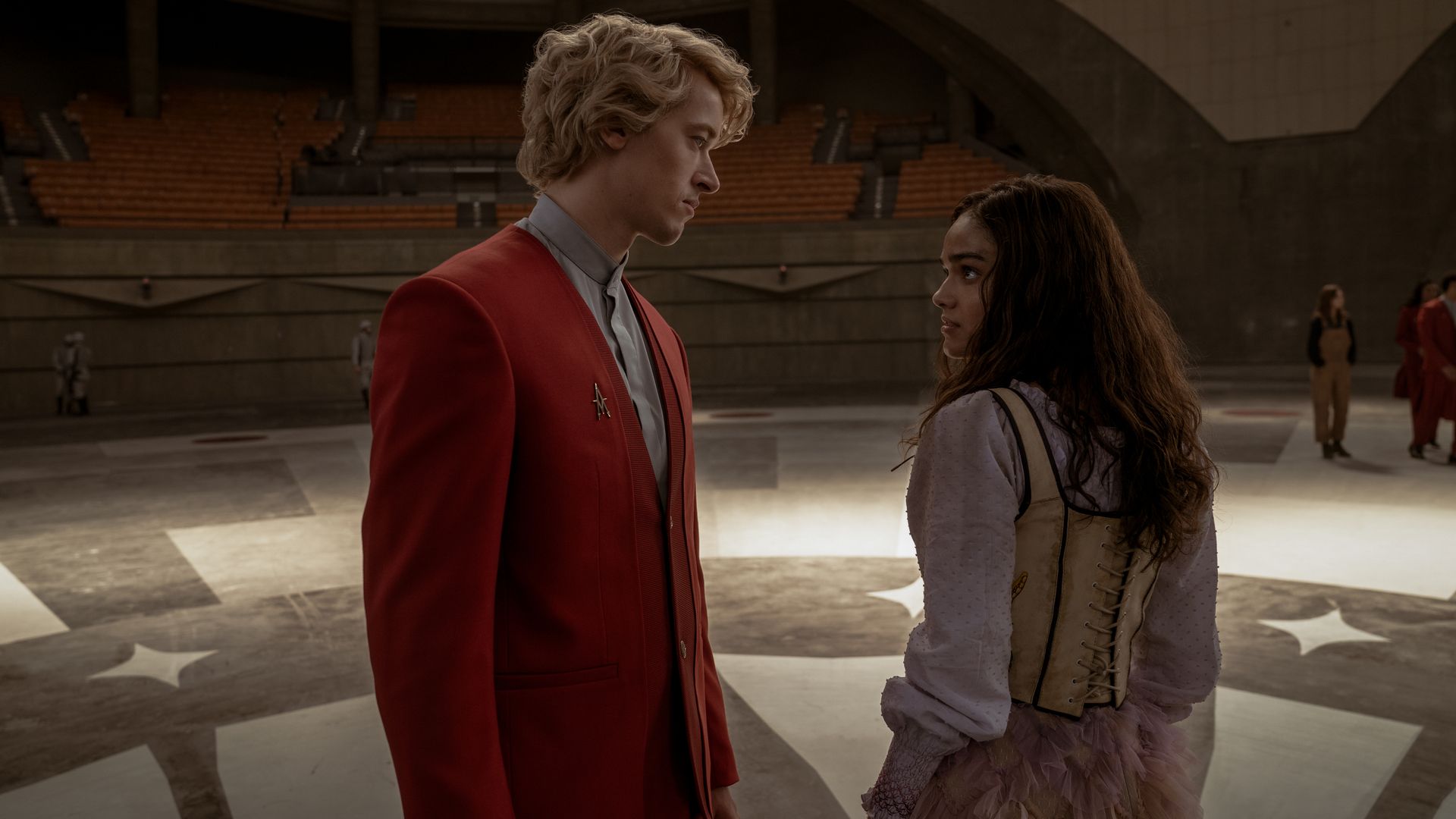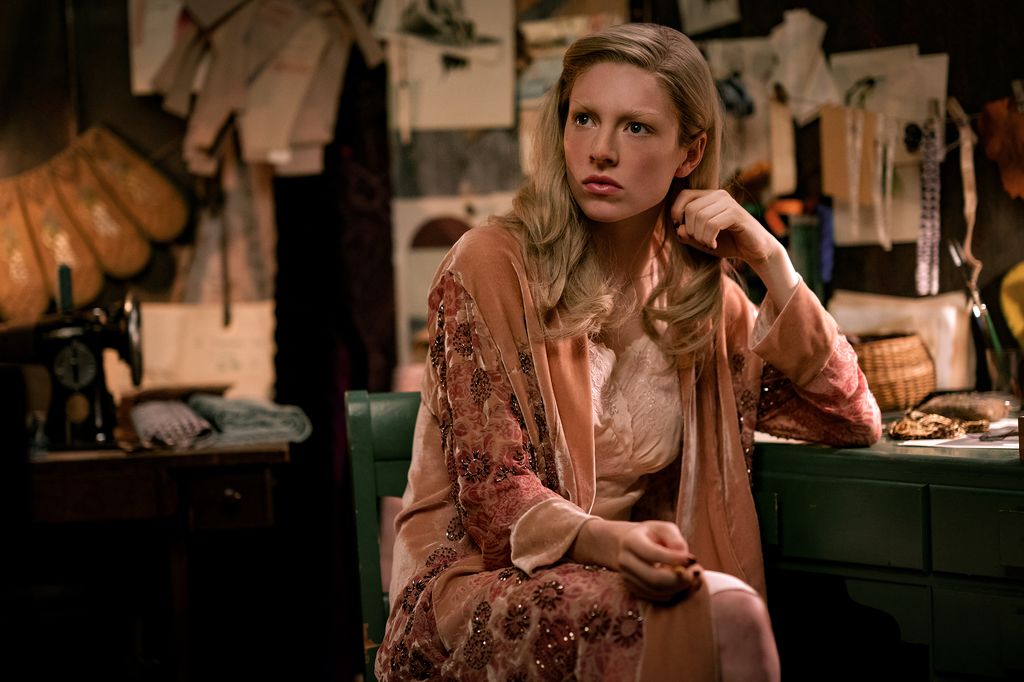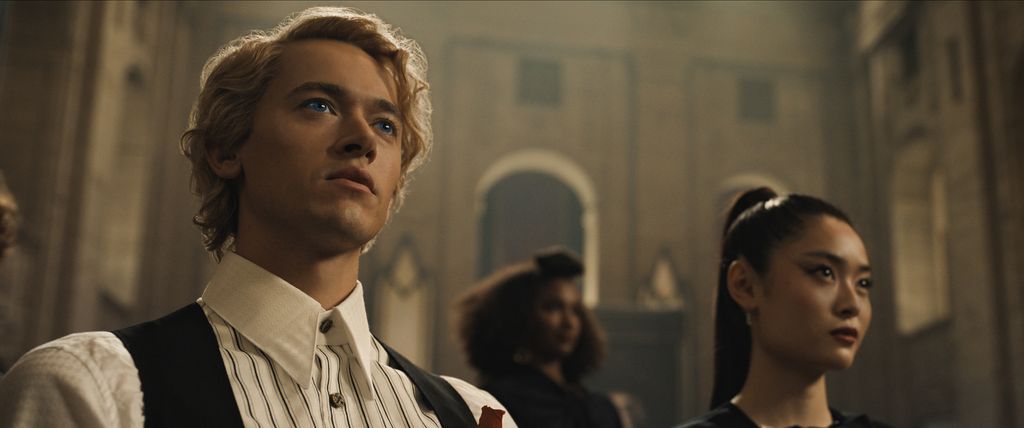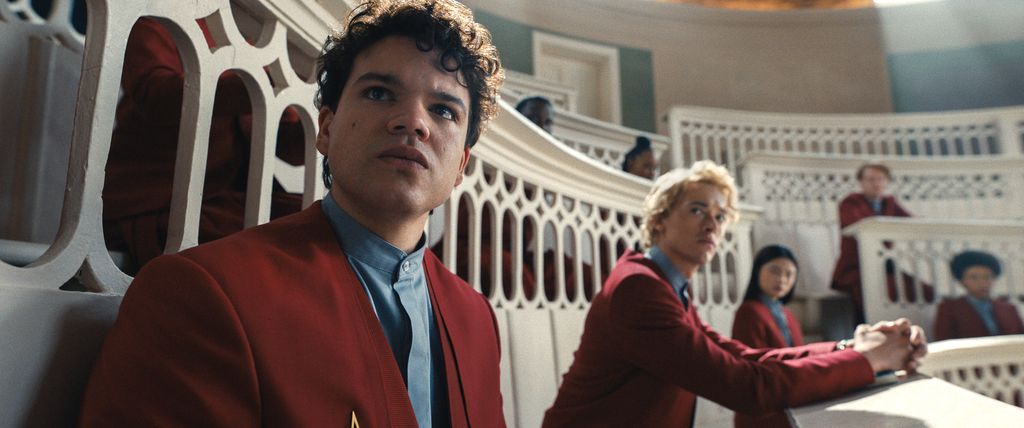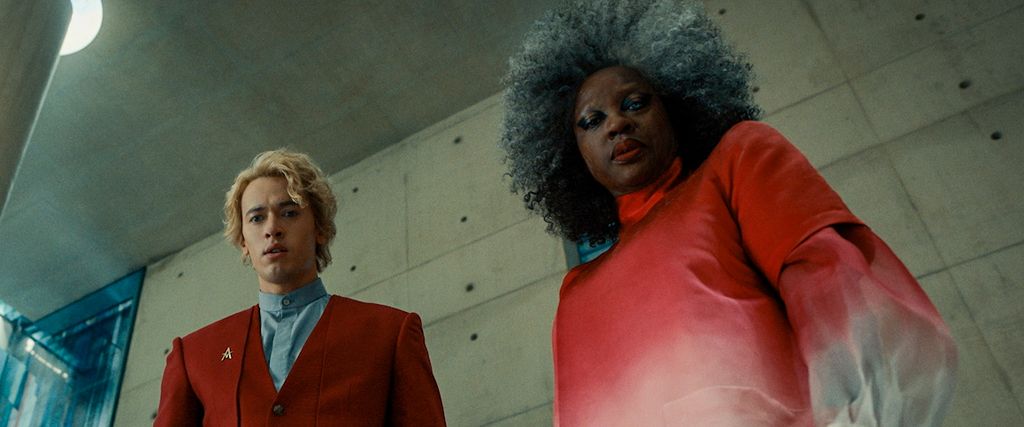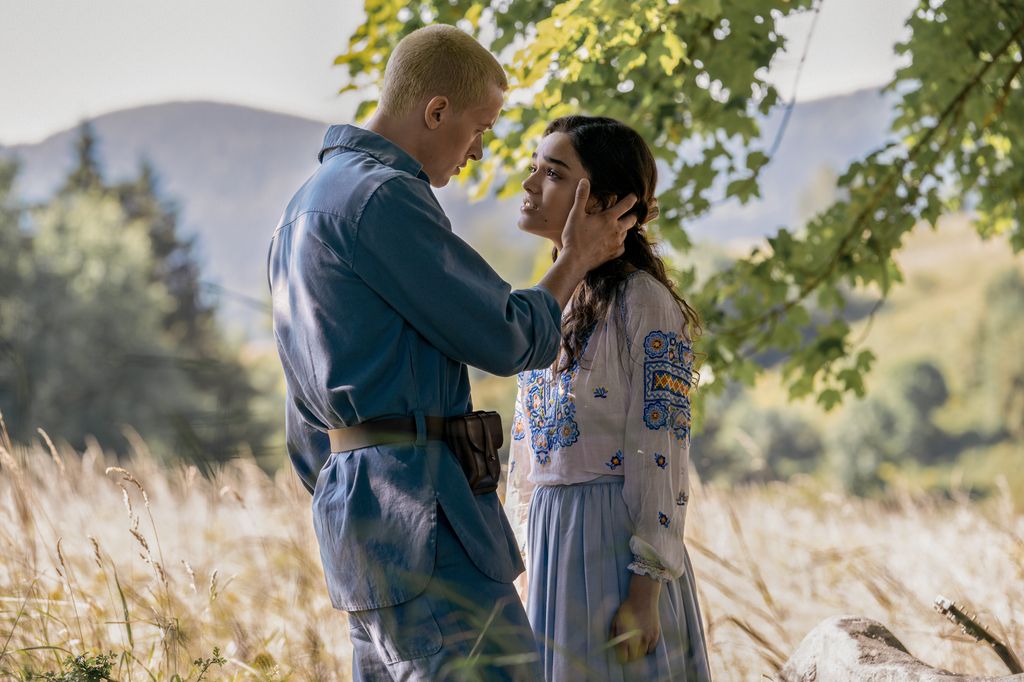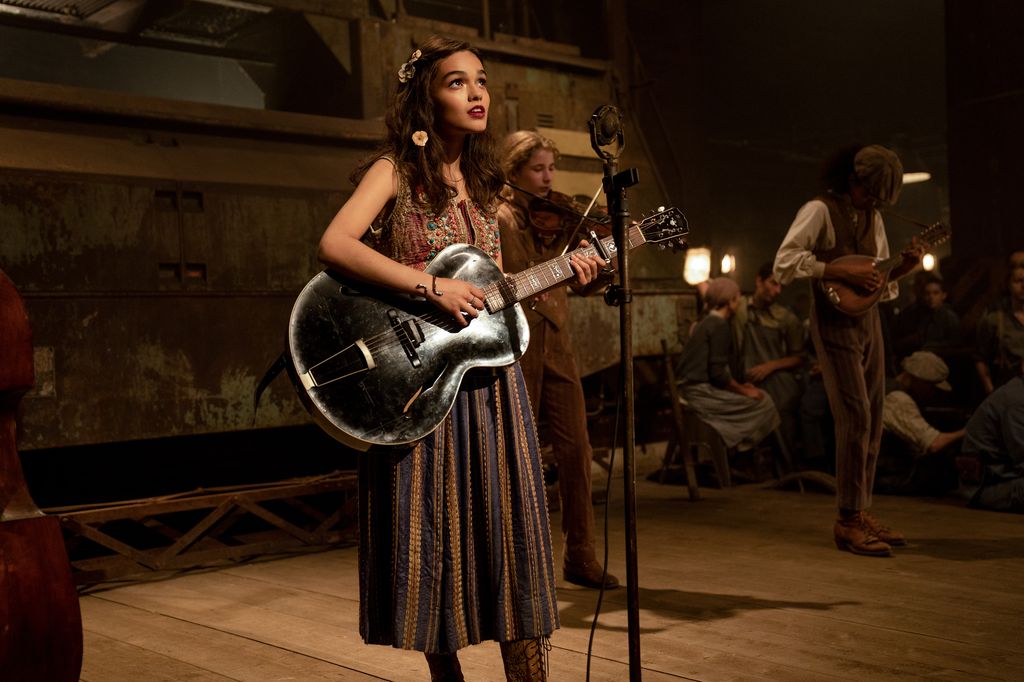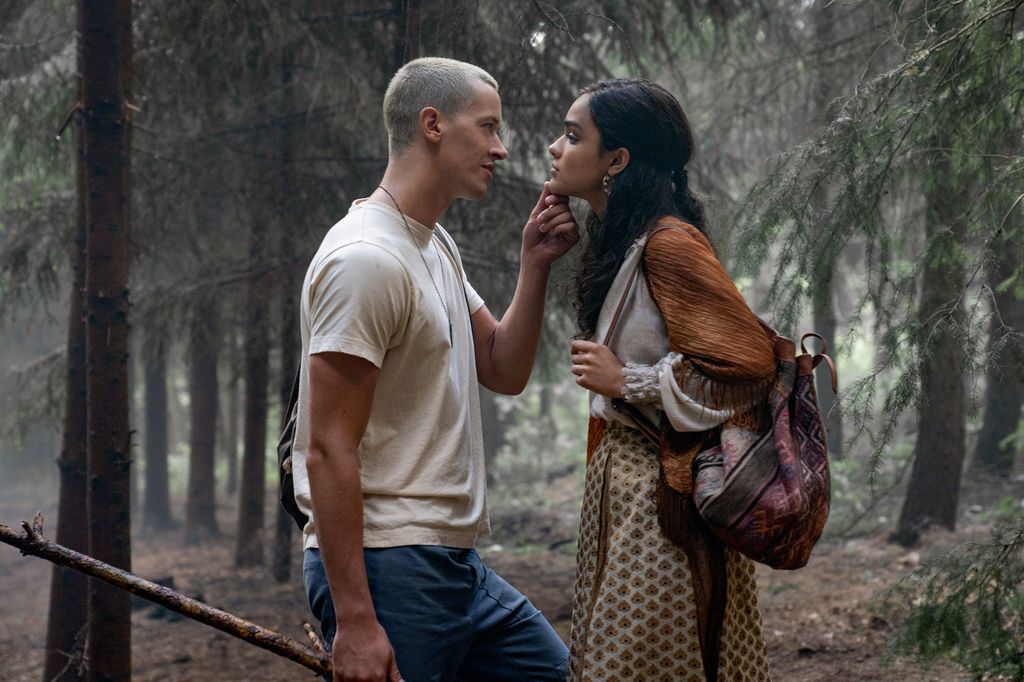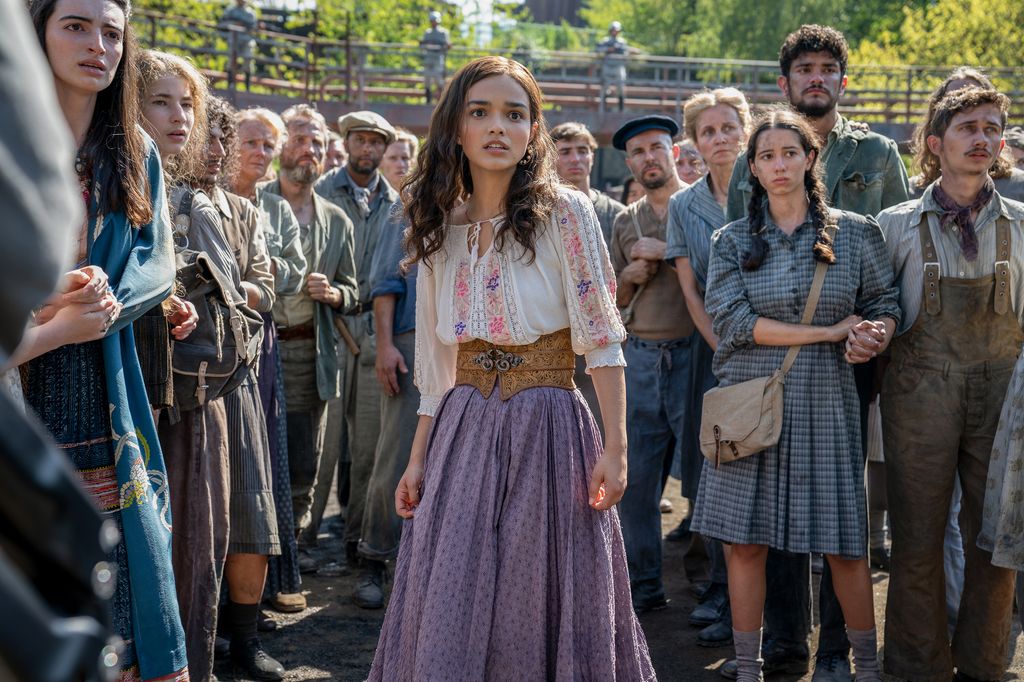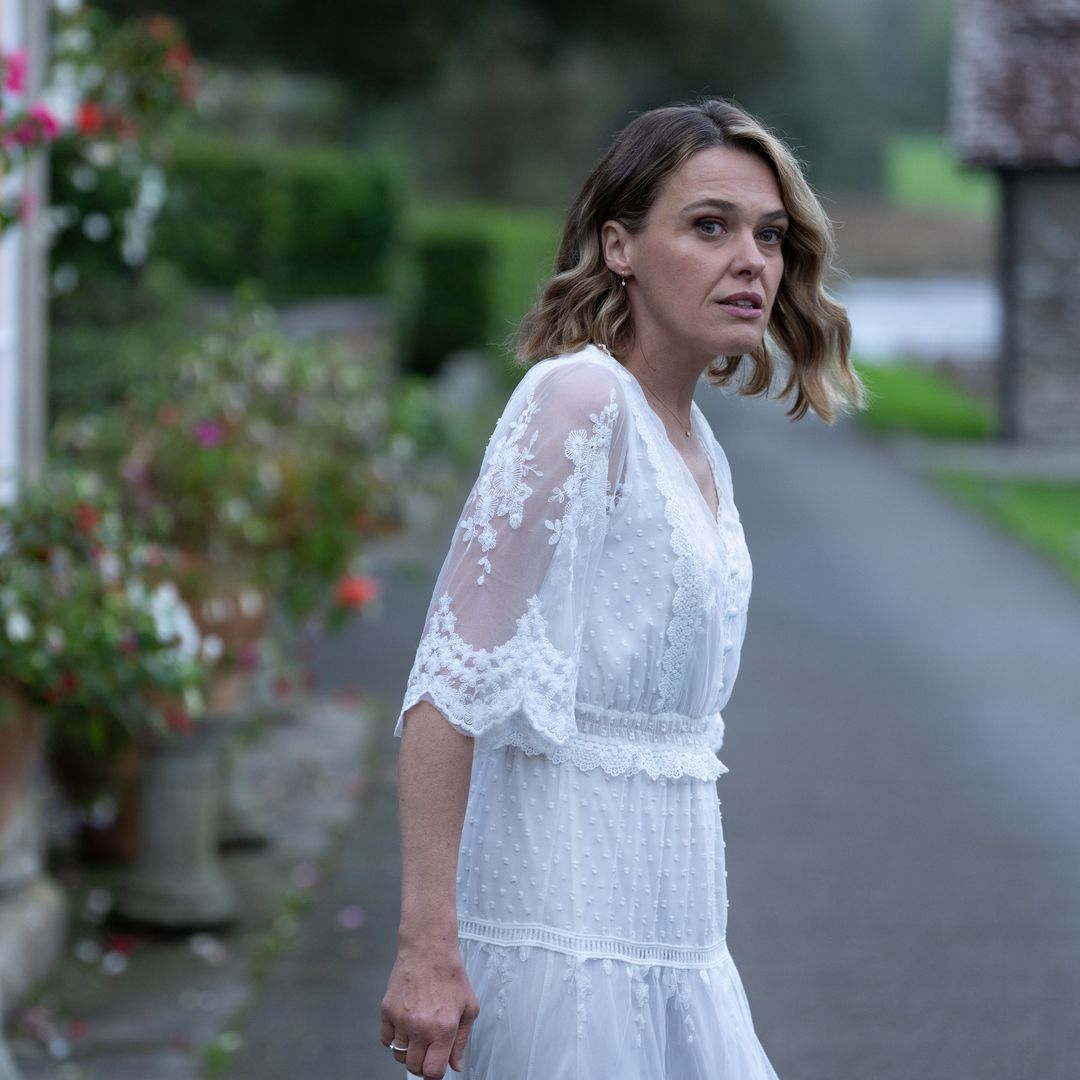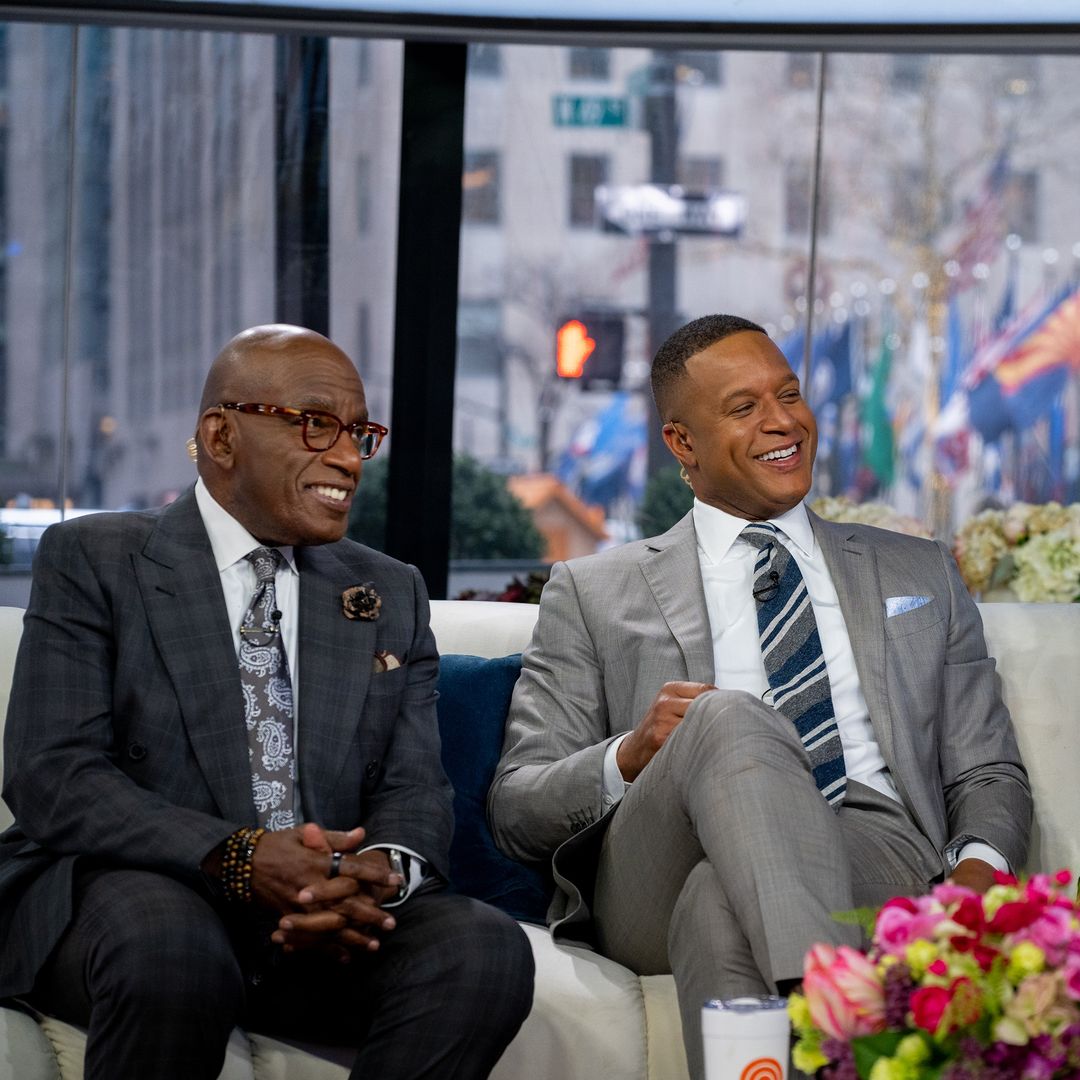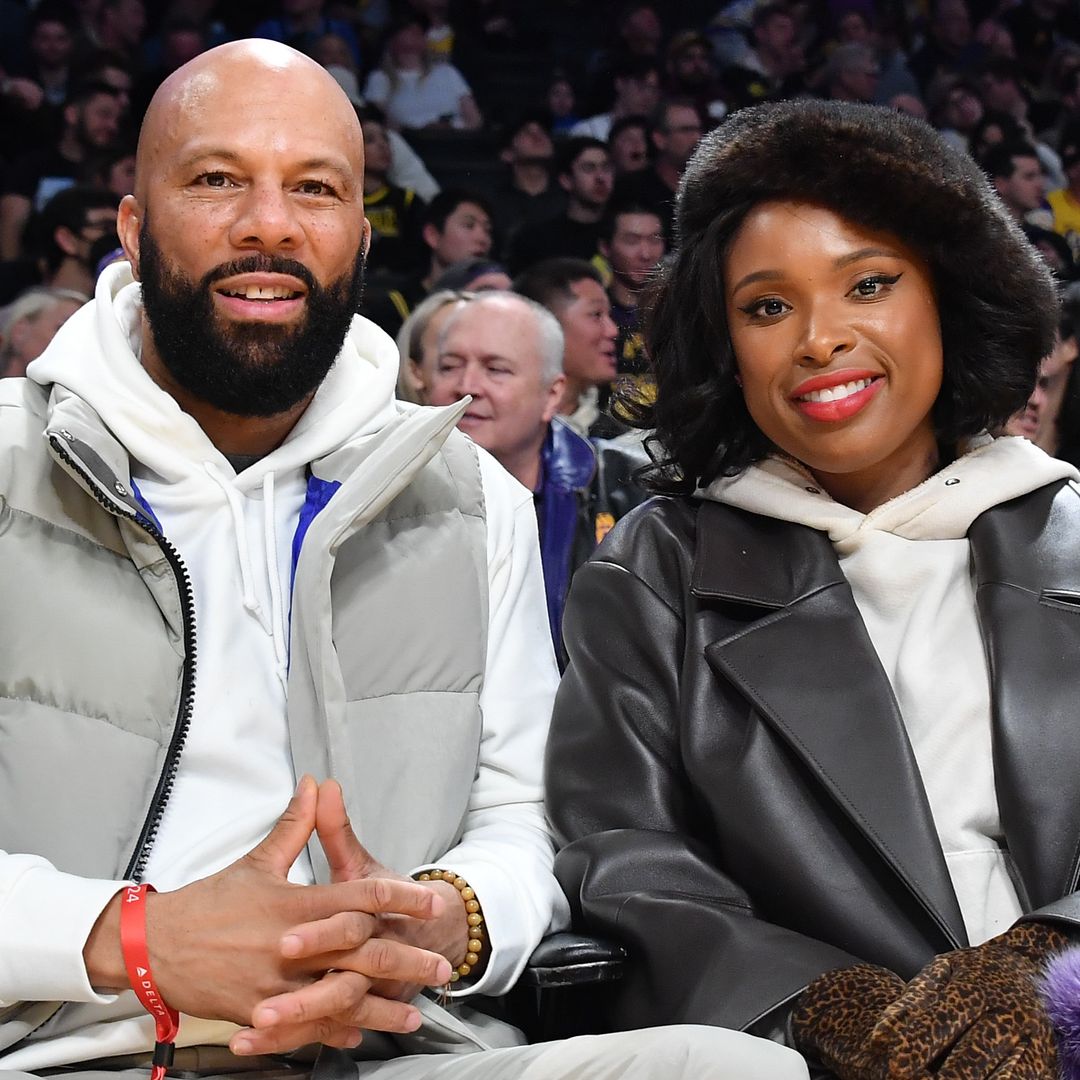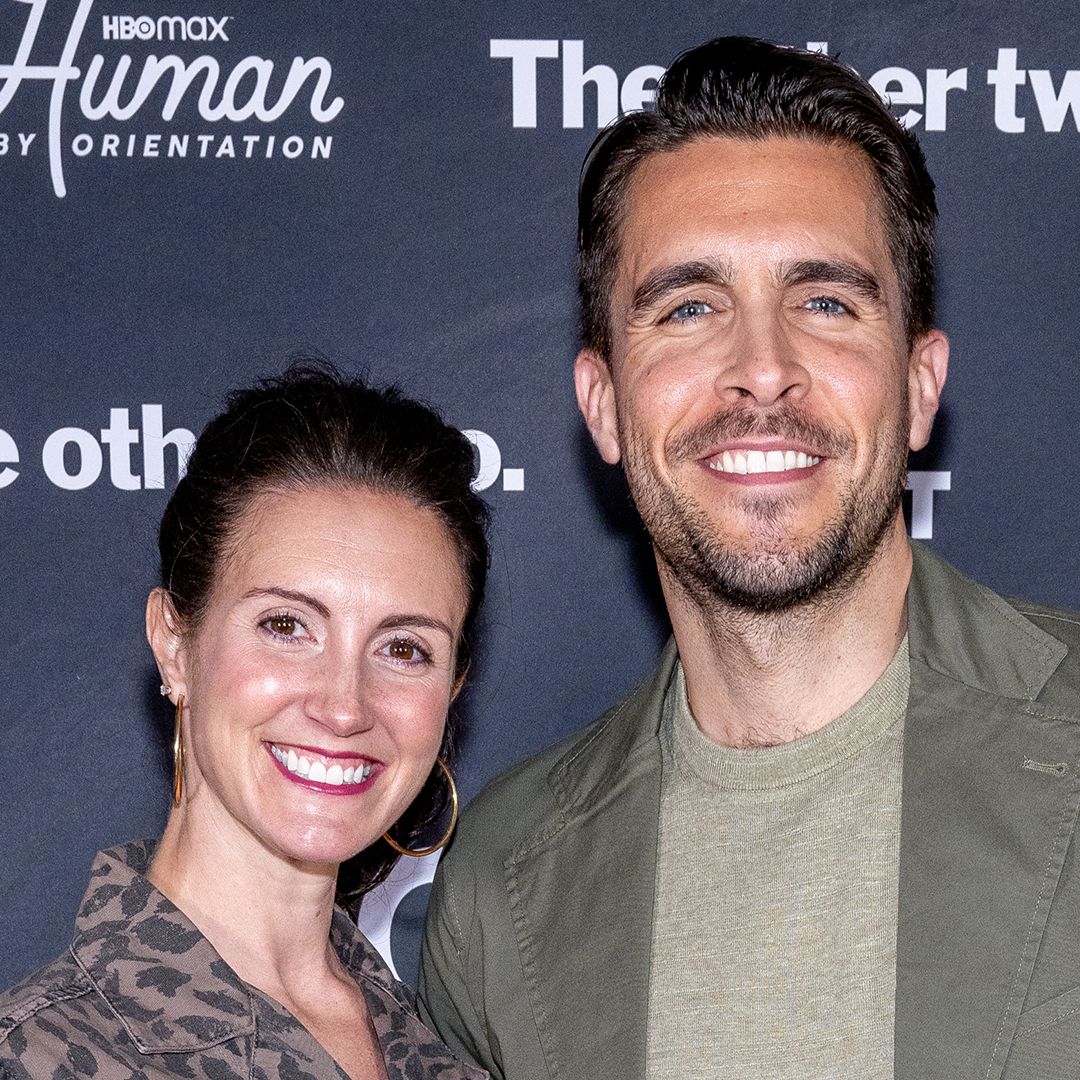Friday marked the official release of The Hunger Games: The Ballad of Songbirds and Snakes and if, like me, you inhaled the book within a matter of days, you have been impatiently counting down the days until you can finally see experience Suzanne Collins' epic novel live on screen.
Let me start by saying that visually Francis Lawrence has perfectly crafted the yesteryears of Panem, not only in terms of setting but also the cast of Tom Blyth, Rachel Zegler, Hunter Schafer, Viola Davis, and Peter Dinklage.
That being said there were a number of things from Suzanne's novel that were either changed or omitted entirely and, since I cannot get enough, I have penned six of the ones I noticed the most when watching the new film.
Spoilers ahead!
Pluribus Bell
One character who was completely omitted from the new film is Pluribus Bell. He owns the bar in which Dean Highbottom got drunk and revealed the idea he had of the Hunger Games to Coriolanus' dad, Crassus Xanthos Snow.
In the novel, Pluribus becomes a well-needed ally of Corioulanus, sourcing Lucy Gray's guitar for her interview, he houses Tigris and the Grand'mam when they are unable to afford the new tax on their building and he sends Lucy Gray new strings for her broken guitar via Corioulanus in District 12.
Coriolanus’ mentor Satyria
In the novel, all of the student mentors are given their own mentors, Coriolanus' being Satyria who guides him through the process with Lucy Gray. Whilst she isn't a vital character to the plot, it does make Coriolanu's dismissal to life as a Peacekeeper more shocking as just before he is told the news, Satyria tells him she thinks he's about to be on camera with Lucy Gray.
Whilst Tigris doesn't say anything of the sort, it appears as though she takes on the qualities of Satyria in the film, we see her advising him at home ahead of Coriolanus' first meeting with Lucy Gray as well as her appearing at the Academy in support of her cousin, and celebrating with him before he is banished to District 12.
Clemensia and the snake
One thing I was excited to see was how Clemensia's character changed after being bitten by one of Dr. Ghaul's snakes. In the novel, we learn she begins to develop scales as well as a deep hatred for Coriolanus following being bitten, but sadly we don't see her in the new film following the bite. Instead, it is left ambiguous as to whether she lives or dies in the film, rather than returning to the academy to continue her role as a mentor as she does in the novel.
Sejanus' parents and the Plinth Prize
Whilst Sejanus' parents were still in the new film their visibility on screen was incredibly limited. Sejanus' mum Ma, even if rather one-sided, develops a deep affection for Coriolanus from quite early on in the book as her son's 'best friend'. He spends most of the early moments extremely hungry and Ma becomes a reliable food source always baking and preparing food for Coriolanus, not to mention the house visit he makes not only to Ma and vice versa but Coriolanus also has a private meeting with the Capitol esteemed, Strabo Plinth, Sejanus' dad.
This makes Corioulanus' betrayal of Sejanus - causing him to be hanged by peacekeepers - even more harrowing. Not only that but as rightly depicted in the film, the Plinths quite literally adopt Coriolanus into their family and become his sole providers which makes more sense in the novel because of their ongoing relationship.
Whilst it's equally as harrowing to hear Coriolanus departs the film living with the parents of the boy he had killed we don't have the same, if any backstory so it risks feeling a little random and ambiguous as to how he ended up there.
The Plinth prize is also what motivates Corioulanus' to keep a good relationship with Sejanus' parents and Sejanus himself, but unlike in the novel where this award is brought in halfway through the games amplifying his motivation to get close to Sejanus and his family, the Plinth Prize is what the students are trying to win from the beginning of the film.
Corioulanus' Peacekeeper roomies
One of the things I felt was worth being included in the new film were Corioulanus' roommates: Bug, Smiley, and Junius, who is given the nickname 'Beanpole', as well as Sejanus who joins the group late, unlike in the film where he joins Coriolanus on the way to District 12.
The group develops a close friendship showing another warm side of Coriolanus, whose nickname is 'Gent', and Sejanus 'Bull's eye' due to his ironically good aim with a rifle. We see Coriolanus develop a new life in District 12 and whilst still missing home they, along with Lucy Gray make his new life survivable. In the film they are included but very briefly.
Another change in this section is that Sejanus brings with him Coriolanus' school diploma, allowing him to take his officer exams, rather than just being given the opportunity based on his father's name and performance in Peacekeeper training. Sejanus' forethought in bringing his qualification is seen as a lifeline back to the Capitol for Coriolanus further strengthening their relationship.
Sejanus also goes with Coriolanus to meet with the Covey and Lucy Gray each week, as well as going on the lake trip with them all. He helps Corioulanus see Lucy from the get-go, again despite Corioulanus finding Sejanus a burden, this strengthens his relationship with him.
The removal of all of these things from his life as a Peacekeeper in the film, as well as the removal of the limited third-person perspective (see below) made his betrayal of Sejanus less shocking on screen than I found it to be when I read the novel and nearly threw my book out of the window.
Removing the limited third-person perspective
It's extremely common for creators to omit a limited third-person perspective of a novel when it is translated into a film but in this instance this omission I felt may have hindered the narrative.
Fundamentally, what made Corioulanus' downfall to Snow so shocking in Suzanne's novel was that despite how much he was in love with Lucy and how much deeper his friendship with Sejanus got he still betrayed them in the ultimate way to get what he wanted. Arguably what we got with the film was rather a foreshadowing of his upcoming betrayals, which were depicted through his interactions with both, Lucy and Sejanus a we were left expecting him to betray both the love of his life and his eventual best friend.
One of the main examples of this in the film, is that we are unsure whether he truly loves Lucy Gray. Very early in the film, ahead of her entry into the Hunger Games, he asks her: "Is this real?" and that is the only moment we get that is close to understanding his feelings for her.
Whether it was a fear of the creators making a future dictator appear likable, and dare I say it, even lovable, I don't know, but when watching I couldn't help but feel we were spoiled in the book, always knowing exactly what Coriolanus felt. His love for Lucy Gray, even if toxic was undeniable and confirmed in her song Pure as the Driven Snow which sparks the inner monologue about his love for her. In the film, he simply smiles upon hearing the lyrics and then leaves during the number to for Sejanus, not really reacting to Lucy's confession of love.
We also know Corioulanus loved Lucy Gray because at the end of the novel he vows he wants a "loveless marriage" to his classmate Livia Cardew, framing Lucy's love as "manipulative" which isn't in the new film.
Ultimately, showing Coriolanus' true feelings of love and care, despite their positive connotations would have only further contributed to his ultimate villainity and his eventual role as a dictator more shockingly evil which I feel would have been more true to Suzanne's depiction of the character. That being said, I felt Tom Blyth was the perfect fit for Coriolanus and it, in my opinion, appeared to be a directional choice made by the creators of the film.
Another example is the aforementioned omission of Lucy's friendship with Sejanus in the film. In the book, her link to Sejanus makes her all the more upset when she realises Coriolanus is the reason he is hanged causing her to take drastic action and run away in the woods. Contrastingly in the film, the recording of the conversation Coriolanus sent to Dr. Gaul is played at the hanging and Lucy is left suspicious of her lover even before they run away together, foreshaddowing the events in the woods.
